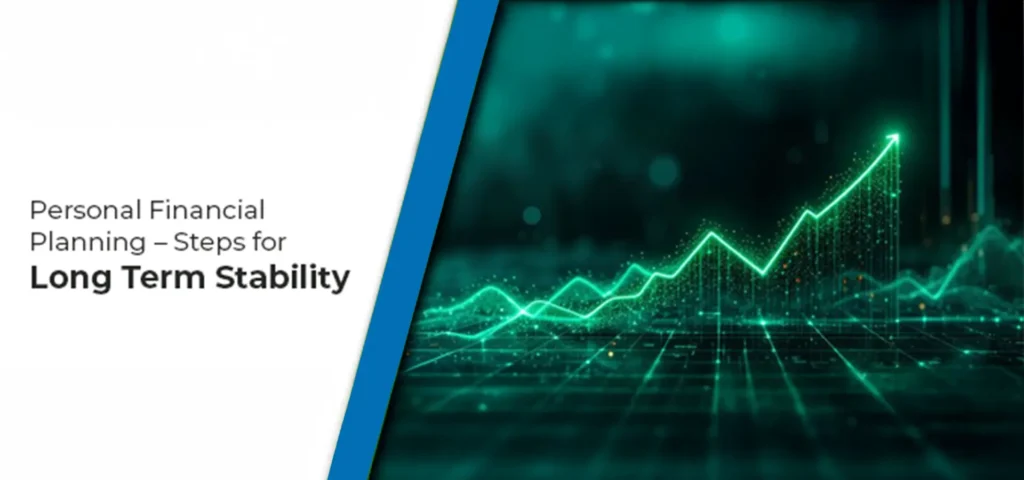Introduction
Personal financial planning has been described by many as a practice that creates calmness in both present and future life since the act of shaping money decisions through awareness helps individuals reduce daily stress while also giving direction to future dreams. Every person handles money differently yet almost everyone admits that when income is not carefully guided it often disappears quickly leaving no memory of where it was spent and no savings to secure the future. When a person learns to combine earnings with clear planning the result is not only financial growth but also emotional relief because the fear of sudden difficulty becomes weaker when a foundation of savings is strong. Human behaviour often pushes people towards immediate enjoyment and while such choices bring momentary joy the absence of planning creates heavier problems later and this realisation eventually forces many individuals to return to financial planning after feeling the pain of unpreparedness. Therefore personal financial planning is not simply a technical exercise of counting income and expenditure, it is also an emotional shield that guards the mind against worry while creating a path for steady long term stability.
1. Set Clear Goals for the Future
Without goals financial planning has no direction because money requires guidance in order to grow with purpose rather than scatter into unplanned spending. People who write their goals often feel a stronger sense of discipline because each time they spend the thought of whether the purchase connects to their plan rises within their mind and creates awareness. Goals may include retirement, comfort , higher education for children, building a home or traveling to distant places with family and when these desires are shaped into clear written statements every action gains focus. Human reasoning works better when objectives are visible because the brain tends to follow written commitments with more seriousness than loose ideas floating without structure. Goals also give emotional satisfaction when progress is measured since even small steps towards them create encouragement and build confidence and this cycle of progress strengthens financial stability while also nurturing patience in the investor.
2. Review Income and Expenses with Patience
People often work hard for income but rarely track the flow of expenses with the same patience which explains why many households face shortage even when earnings appear reasonable. Writing down every monthly payment, comparing it with monthly income and studying which areas consume more money than required creates a picture that cannot be ignored because numbers on paper often reveal habits that the mind prefers to hide.
3. Build Emergency Funds for Safety
Life creates sudden moments of uncertainty and without emergency funds even a stable financial plan collapses under the pressure of unplanned expenses. Job loss, illness , accidents and urgent repairs come without warning and in such times people who kept emergency savings breathe with relief while those who did not face stress and sometimes debt. The idea of building an emergency fund may feel tiring when income already appears stretched yet the calmness it creates during unexpected times is far greater than the discomfort of saving little by little.
4. Diversify Savings and Investments
Placing all money in one place can feel simple but the risk of losing value becomes heavy if that one place suffers loss which is why spreading savings and investments across multiple forms creates stability. Savings accounts provide safe fixed deposits, give steady interest, bonds offer regular income and property delivers both rental cash and appreciation and by combining them one creates a balance that supports long term planning. Diversity also reduces emotional fear because when one part underperforms another part often rises which gives the investor a sense of calmness that the overall plan remains safe. People who experienced financial losses in the past often describe how they learned the value of spreading risk and their reasoning reflects the truth that no single option can be trusted for every stage of life. When savings are placed in different channels growth becomes steady, risk becomes lower and the investor enjoys peace of mind.
5. Use Guidance for Better Choices
Many individuals feel confused when faced with terms like insurance bonds, mutual funds or property valuations and confusion often leads to delay or poor decisions that later reduce benefits. Guidance from trusted experts, experienced friends or from financial mentors brings not only technical clarity but also emotional reassurance that decisions are being shaped with proper reasoning. A good advisor listens to personal needs, studies financial capacity and suggests plans that connect directly to those unique goals rather than offering general patterns that may not suit everyone therefore this personalised support prevents mistakes such as overspending, ignoring insurance or chasing unrealistic returns and each avoided mistake protects the long term stability of the plan.
6. Think Beyond the Present
Financial planning cannot end with the present year because time moves without stopping and life continues to demand new resources for education, health , retirement and family support. A person who reviews progress every year feels more in control than someone who ignores planning until crisis appears and this regular attention builds both confidence and calmness. To think beyond the present is to give respect to the future self and such respect creates harmony between today’s enjoyment and tomorrow’s security.
Final Thoughts
Personal financial planning creates more than money because it builds peace of mind, confidence and security that stretch across years and these qualities often carry greater value than numbers in a bank account. A person who sets goals, reviews income, prepares emergency funds, spreads savings, accepts guidance and looks beyond the present creates a financial journey that feels both steady and rewarding. Each step requires patience yet the reward of long term stability touches not only the financial condition but also the emotional state because a stable plan makes life less fearful and more comfortable. People who practice financial planning with discipline discover that they live with less stress and more control and this realization strengthens their belief that thoughtful decisions made today will shape a tomorrow that feels safe, calm and filled with satisfaction.

